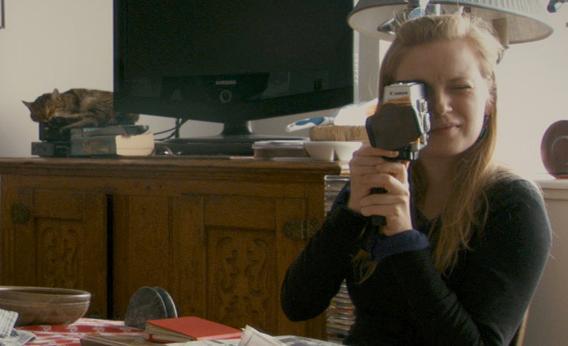The idea that no story can be told except from one particular and limited point of view, that no two accounts of an event are ever the same, that our own memories can deceive and betray us has been at the center of many great documentaries. Nonfiction directors from Errol Morris (The Thin Blue Line) to Andrew Jarecki (Capturing the Friedmans) have explored the ragged border between provable falsehoods and knowable truths, often ending their films on a note of epistemological ambiguity—how can we ultimately be sure that what we think we know is really what happened? Stories We Tell, the third feature film and first documentary from the 34-year-old Canadian actress-turned-director Sarah Polley, also pivots on the irreducible fact of narrative unreliability. But the “truth” Polley sets out to discover isn’t a legal or journalistic one—rather, she’s interested in the complex and conflicting truths about how her family members (specifically, her siblings and father) remember, understand, and live with a series of painful events from their shared past.
If a personal memoir film by a beautiful, successful young woman from a nice Toronto family sounds to you like it can only be an excuse for self-absorbed navel-gazing, well, you must not have seen a Sarah Polley movie yet. Both of her previous films, the somber Alice Munro adaptation Away from Her (2006), and the semi-autobiographical romantic drama Take This Waltz (2011) have felt astoundingly assured in both conception and execution. (They’re also astoundingly different from one another, and from this movie, revealing their director as a surefooted genre-hopper). I’ve been lauding Polley as a major emerging talent since Away from Her; with Stories We Tell, more people are going to start saying the same, and I hope even more will listen.
I’ll reveal very little about the vexed family history in question, because the onion that is Stories We Tell is more rewarding to peel yourself. Let’s just say that Polley’s mother, Diane, who died of cancer when the director was 11, was a woman of many secrets. A former actress and casting director with an outsized, bubbly personality, Diane projects an irresistibly magnetic aura even in old still photographs. Her husband, Michael, also a former actor, serves as the movie’s narrator, reading from a long text about his late wife that he wrote and that Polley asks him to read into a sound-studio mic, occasionally interrupting from the booth with director’s notes: “Dad, can you take that part again?”
The movie nimbly intercuts this paternal voice-over with interviews with Polley’s siblings and others in the present day, along with Super 8 footage of her parents’ early marriage and her and her siblings’ childhood, some of it apparently authentic, some cleverly staged. Mysteriously, the gradually dawning revelation that not all these snippets of Super 8 are “real” doesn’t leave the viewer feeling cheated (and this from someone who usually hates History Channel-style “re-enactments” in documentaries). Rather, Polley’s imagined home movies—some of which stand alone as tiny, poignant works of art in themselves—testify to the creative power of memory, our ability to conjure into existence a past we never knew.
Stories We Tell kicks off by foregrounding the circumstances of its own making, as Polley’s chief interviewees—her siblings and half siblings, her father, and a small group of her mother’s closest friends and rumored ex-lovers—awkwardly settle themselves in front of the camera, asking if they have anything in their teeth, sometimes cracking jokes at their director’s expense. (Polley herself appears occasionally on screen as an observer, but never recounts her own version of the family saga, even though it involves her perhaps the most directly.) Some viewers may find this self-reflexive introductory apparatus distancing or distracting—yes, yes, we get that making a movie is an artificial process, now cut to the chase and start telling the damn story. But Polley’s choice to leave in some of the clatter and tedium of setting up a film shoot—and to linger on the self-conscious discomfort of the waiting interviewees—is her wry way of acknowledging that getting the people you love to speak honestly about the painful, submerged truths that matter most to them is never as simple or transparent as all that. Up until the last surprise of Stories We Tell, Polley’s subjects are amending and footnoting their versions of Diane Polley’s story, sometimes for reasons of defensiveness or vanity or guilt, sometimes just because they’ve thought of one more thing they still need to say. The document Polley has pieced together from their joint reconstruction of her mother’s past is a formally fascinating work of art, a compassionate portrait of a complex, flawed, and ultimately unknowable woman, and without a doubt one of the best movies I’ve seen this year.
